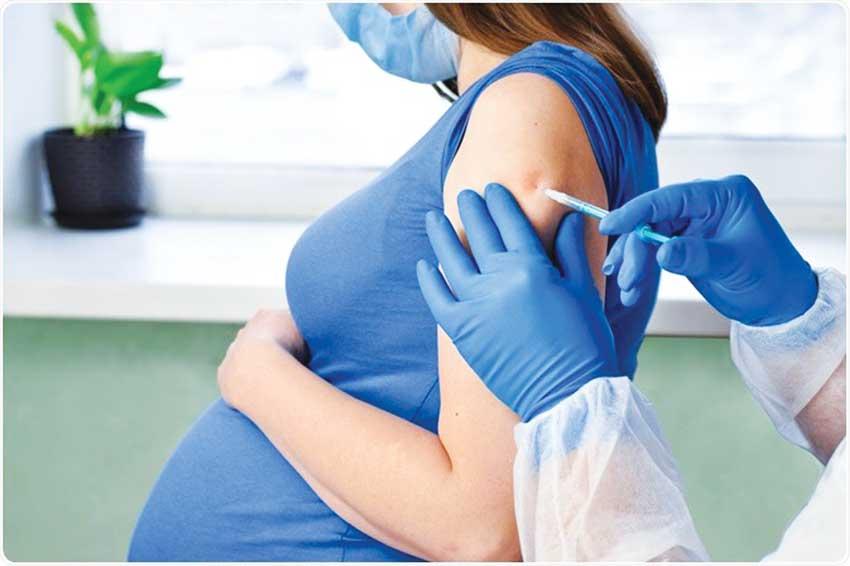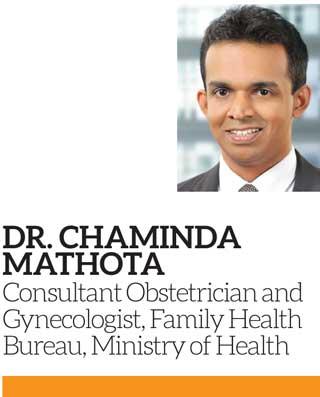01 Oct 2021 - {{hitsCtrl.values.hits}}

The daily surge in Covid-19 figures presents pregnant women and their families with additional uncertainty. However, understanding the implications and addressing their concerns especially the benefits of vaccination serves to protect pregnant women and their babies and support a healthy pregnancy.
An awareness campaign conducted jointly by the Health Promotion Bureau of the Ministry of Health, the World Bank and UNICEF sheds light on essential information in relation to Covid-19, the importance of Covid Appropriate Behaviour (CAB) and the need to continue prevention measures after vaccination.
Dr Chaminda Mathota, Consultant Obstetrician and Gynecologist, Family Health Bureau, Ministry of Health explains the implications of Covid 19 on pregnant mothers and the protection offered through vaccination.
Discussing how Covid-19 affects pregnant mothers, Dr Mathota noted that in relation to pregnancy, the risk of having the infection is no differentto any women in the same age whether they are pregnant or not. “The problem with pregnancy and the Covid infection is the severity. We consider two things; first the mother and second the baby.”
There is no problem about the timing of pregnancy, to take the vaccine and it is the most effective way for pregnant women to get protection against Covid
 He emphasised the main risk associated with Covid-19 and pregnancy was the risk of premature delivery i.e., the baby can be born before the 37 weeks. However, Dr Mathota assured that “Most Sri Lankan pregnant women are young and fit. They are asymptomatic. For the minority who are symptomatic hospital admission is recommended to check for oxygen saturation.”
He emphasised the main risk associated with Covid-19 and pregnancy was the risk of premature delivery i.e., the baby can be born before the 37 weeks. However, Dr Mathota assured that “Most Sri Lankan pregnant women are young and fit. They are asymptomatic. For the minority who are symptomatic hospital admission is recommended to check for oxygen saturation.”
The Doctor further explained that having separate facilities to accommodate pregnant women in hospital is important. “In the hospital we have to make sure of the safety of pregnant women who are not Covid-positive. Covid-positive mothers are isolated from other women who are not infected. If the patient becomes positive and she needs delivery, then we deliver them in a specially isolated labour room, with the staff wearing all the personal protective equipment.”
A constant worry among Covid-positive pregnant women is the fear of transmitting the infection to the unborn baby. According to Dr Mathota, based on global evidence and research, currently there is no evidence of congenital covid infection transmission of the COVID-19 from a woman to her baby during pregnancy. However, he notes that that if the mother gets a severe infection,it can affect the baby in an indirect way rather than the virus crossing the placenta, but most babies born are negative for covid. Moreover, Dr Mathota explains “Usually we detect the infection earlier in a pregnant woman, and by the time the baby is delivered, the mother is not so infectious, so the risk of spreading to the baby is very low.”
Stressing the importance of vaccinations for pregnant women, Dr Mathota said, “Evidence suggests that covid vaccines are safe, during pregnancy, including the first trimester. There is no problem about the timing of the pregnancy, to take the vaccine and it is the most effective way for pregnant women to get protection again Covid. Therefore, all pregnant women should get any vaccine as it is the best vaccine.”
He advised, “In case they have not got the vaccine before pregnancy, they should get the vaccine as soon as they become pregnant, they need not wait until the end of the first 12 weeks to get vaccinated.”Moreover, the Doctor noted that there is no restriction to postpone pregnancy. According to the available international evidence, there is no rationale in postponing the pregnancy until the infection is over.
On vaccinations, he further explained, “There is also confusion about other vaccinations and the time gap. If the patient has taken tetanus, they can get the covid vaccine as a priority after the tetanus vaccination.”
Another concern among women after giving birth and if covid infected, whether it is safe to breast feed the baby. Dr Mathota asserted that “If mothers stop breast feeding, that can do more harm to the baby, rather than the risk of catching the infection. The reasoning is if you take enough protection, wear the mask, wash your hands with soap, and maintain good health practices, the risk of transmitting infection to babies is very low”.
20 Dec 2024 9 hours ago
20 Dec 2024 20 Dec 2024
20 Dec 2024 20 Dec 2024
20 Dec 2024 20 Dec 2024
20 Dec 2024 20 Dec 2024